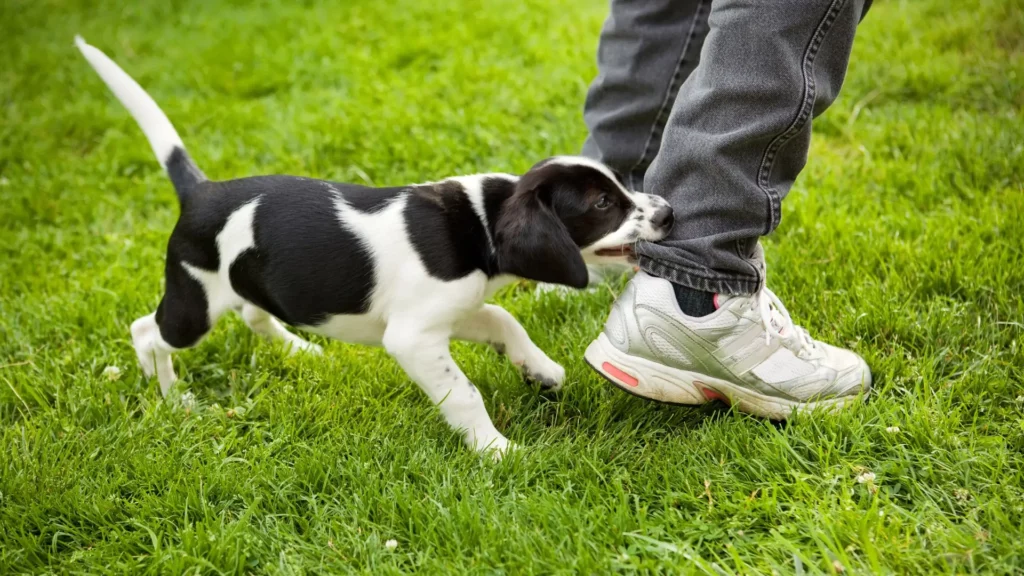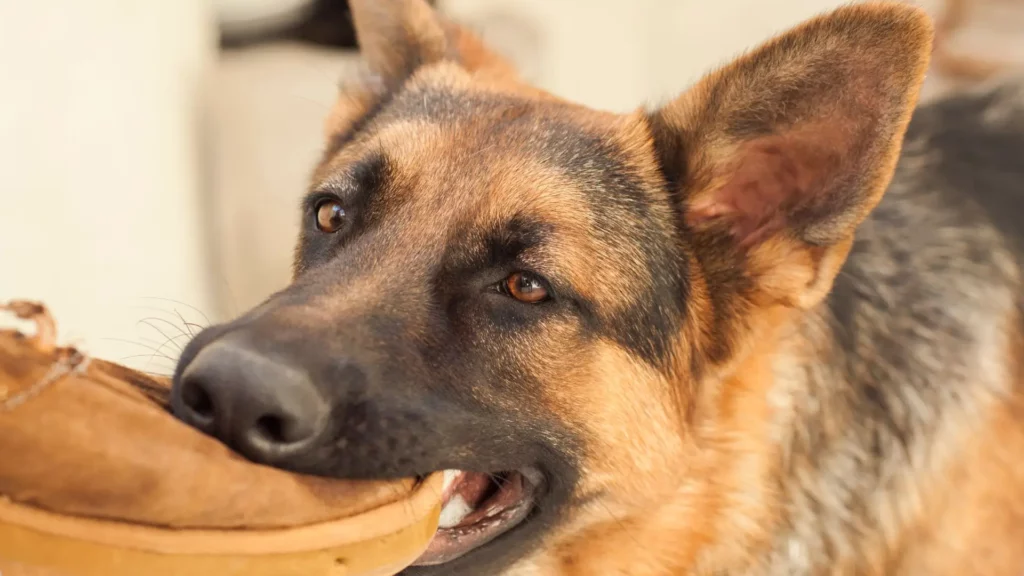Dog bites in Washington State are fairly common, often resulting in bodily harm that may require extensive medical treatment. Victims, whether a child or adult, are not only expected to face physical injuries, but emotional trauma, as well. Rehabilitation could be necessary in some cases to regain body function and strength, while mental anguish can linger for years.
After understanding the seriousness of these dog bite incidents, the state established laws that hold dog owners accountable for their pet’s behavior regardless of whether they have exhibited such aggression in the past. This aims to lessen dog bite cases by encouraging responsible pet ownership and promoting public safety. Despite these efforts, dog bites are still reported and injured victims are entitled to file a personal injury lawsuit to seek compensation.
At West Coast Trial Lawyers, we are here to provide expert advice and help you through every phase of your case. We are a personal injury law firm with over 20 years of experience and our team of dog bite lawyers are ready to take on your case and fight for your rights. Our attorneys understand how devastating a dog bite injury can be and our team will review the evidence provided, explain what your legal options are, and advocate on your behalf to ensure you are granted fair compensation.
To schedule a FREE consultation with a Washington dog bite lawyer, you can contact us by calling (213) 927-3700 or filling out our easy online contact form.
Types of Dog Bite Injuries
Dog bite injury victims can sustain lasting physical and emotional impacts. Some common types of injuries that may appear after an attack include the following:
- Puncture wounds
- Lacerations
- Nerve damage
- Post-traumatic stress disorder
Dog Bite Levels
According to Dr. Ian Dunbar’s Bite Scale, dog bite levels are classified by the severity of the injury and degree of contact between the canine’s teeth and your skin. Each level describes the type of interaction you may have with an aggressive dog and the seriousness of a penetrating attack. To determine what your injury falls under, the following factors will be considered:
- Whether the skin is broken
- The depth of the puncture wounds
- The number of bites you sustained
Level 1
The dog will exhibit confrontational behavior. But, skin contact by teeth is not involved.
Level 2
The dog bites you. But, you only experience small skin nicks or slight bleeding. No vertical punctures are present.
Level 3
You sustain one to four puncture wounds from a single bite with none deeper than half the length of the dog’s canine teeth. It is possible to suffer lacerations, but it can only happen if you pull your hand away, the owner restrains the animal, or if the dog jumped up to bite but then drops back down
Level 4
The dog inflicts one to four puncture wounds from a single bite, with at least one of them being deeper than half the length of the dog’s canine teeth. This level may involve deep bruising. In addition, lacerations may appear if the animal was held on and shook its head from side to side.
Level 5
A multiple-bite incident will occur with at least two level 4 bites. A multiple-attack incident can also happen, and may involve at least one level 4 bite in each.
Level 6
The dog bite victim dies as a result of the injuries sustained. This level indicates an extremely violent encounter, often involving severe bites or deep puncture wounds.
What Causes Most Dog Bites in Washington?
In Washington state, as in many places, dog bites can be triggered by several factors. Some common causes include the following:
- Fear or anxiety
- Territorial behavior
- Lack of supervision
- Breed-specific traits
- Provocation
- Inadequate training or socialization
Local ordinances often require canines to be leashed or contained to ensure it does not pose a threat to public safety. If a dog owner fails to fulfill their legal duties, chances of dog bite cases may arise. As a result, legal repercussions may be enforced, including fines and liability for injuries. In certain cases, the animal may be identified as a dangerous dog or be potentially euthanized.
What Happens if a Dog Is Classified as Dangerous?
Under RCW 16.08.070, a dangerous dog is one that:
- Causes severe injury on a human without being provoked on public or private property
- Kills a domestic animal without being provoked to do so while off the owner’s property
- Has been previously labeled potentially dangerous with the owner’s knowledge and bites or threatens human safety again
Once this classification has been made, the owner must obtain a certificate of registration (RCW 16.08.080). The requirements include the following:
- Evidence of proper enclosure and visible warning signs
- A surety bond of at least $250,000 to compensate for potential injuries caused by the animal, or a liability insurance policy (like homeowner’s insurance) of the same amount
The certificate will need to be acquired from the city or county animal control authority. Either or will depend on whether the area is served by both entities or just one of them. If no animal control is present, the registration must be collected from the local sheriff. In addition to regular licensing fees, owners may also be charged an annual fee to register a dangerous dog.
The owner has the right to appeal the decision by explaining why the dog should not be declared dangerous. The meeting will need to be held within 15 days of notice delivery and a final written determination may be issued following the meeting. If the jurisdiction has an administrative appeal process, the owner will need to follow it. If there is none, the owner can appeal the decision to the municipal court or district court within 20 days. While it is pending, the dog will be ordered to be confined or controlled.
Other strict regulations (RCW 16.08.090) may be enforced once a canine has been deemed dangerous to ensure it does not continue to harm others. For instance, dangerous dogs must be kept in a proper enclosure and cannot be allowed outside unless they are muzzled and restrained by a substantial chain or leash when outside the property. The garment must not cause injury to the dog or interfere with its vision or breathing. But, it should prevent it from biting a person or animal.
According to RCW 16.08. 100, local animal control will confiscate the animal if:
- It is not validly registered under RCW 16.08.080
- The owner does not obtain the liability insurance coverage required under RCW 16.08.080
- The dog is not maintained in the proper enclosure
- The dog is outside of the owner’s property and is not being restrained by a responsible person
What to Do After a Dog Bite Injury
After a dog bite injury, it is important to act promptly to ensure you protect your well-being and legal rights. Although it can be difficult to take action soon after such a traumatic event, try to remain calm and fulfill the actions sectioned below.
Identify the Dog and its Owner
You should obtain the dog owner’s contact information. Do not forget to also ask for the animal’s vaccination history.
Report the Dog Bite Incident
Reach out to the local animal control authority or the county sheriff’s office. Once they arrive at the scene, they will ensure that the dog is properly checked. In some cases, dog bite victims may need to undergo quarantine to monitor for rabies, especially if the animal’s vaccination history is unknown. If animal control or police document the incident, you should request a copy of it to use if you are planning on filing a personal injury claim against the owner for negligence.
Seek Medical Attention
Be sure to acquire immediate medical attention after the dog bite. This applies whether you sustained minor or serious injuries. Implementing proper care early on can prevent infections and other complications. You can request a copy of any visits or treatments pertaining to the dog bite injury to use as proof that you were harmed after the attack and needed assistance from a medical professional.
Gather Evidence
Be sure to collect the following evidence:
- Photos of your dog bite injury and where it took place
- Written documentation of when and where the incident occurred
- Witness information
- A copy of the incident report and your medical records
Consult with a Washington Dog Bite Lawyer
Consulting with a Washington dog bite lawyer is important to ensure you are granted reasonable compensation for the injuries you incurred. At West Coast Trial Lawyers, we will evaluate the information provided, identify the liable party, and negotiate with the insurance company to get you a favorable outcome.
Does Washington Have a One-Bite Rule?
Washington does not have a one-bite rule. The one-bite rule is used by some states that hold the dog owner liable for injuries only if the owner knew or should have known about their pets aggressive behavior. Under this regulation, if a dog has bitten someone before, the owner could face legal consequences for future cases. But, if it has never harmed an individual or exhibited dangerous tendencies, the owner will not be held responsible for the first incident. They are practically given “one free bite” before they are found accountable for their dog’s actions.
Other states, like Washington, favor a different dog bite law, and that is strict liability (RCW 16.08.040). This means that a dog owner will be held responsible for any injuries caused by their pet regardless of whether it has bitten someone before or if the owner was unaware of its aggressiveness. Victims are not required to prove that the owner was negligent or knew about the dog being dangerous.
The only exceptions to this rule include the following:
- The dog was on active duty under military or police forces
- The dog was acting in self-defense against a trespasser
- The dog was teased or provoked to attack
How Do You Protect Yourself From a Dog Bite?
To protect yourself from a dog bite, it is important to understand the animal’s behavior and take precautions when interacting with them. Some signs you should look out for include the following:
- Stiff body
- Raised tail
- Flashing teeth
- Growling
Even if the dog may appear friendly, they can still feel uncomfortable around strangers. Be sure to always ask for permission before approaching it. Try to stay relaxed when engaging with the animal, and avoid direct eye contact as it can be perceived as a threat. You should also let the dog sniff you before you invade its personal space. If you notice that the animal is eating, sleeping, or caring for its puppies, it would be best not to go near it as it may act defensively. And, if you encounter an unfamiliar or aggressive one, do not yell or run away. Stay still and avoid sudden movements.
Time Limit to File a Dog Bite Claim
A dog bite claim must be submitted within three years from the date of when the incident occurred. If you fail to file your personal injury lawsuit within this time limit, you will lose the opportunity to seek compensation. You should act promptly to collect evidence and develop a well-constructed case. Acquiring legal representation from a Washington dog bite attorney can also ease the process, and allow you to focus on your recovery without added stress.
Damages Available to Dog Bite Victims
Damages available to dog bite victims will vary depending on the factors involved in the case. Since each plaintiff experiences unique challenges, settlement value will differ. The court will consider the following when determining and distributing compensation:
- The extent of your injury
- Degree of fault
- Current and future medical expenses
- Lost wages and earning capacity
To get an estimate of what you could be owed, you can use our personal injury settlement calculator by entering the expenses you incurred as a result of the dog bite injury. Generally speaking, economic damages and non-economic damages are awarded in these types of cases.
Economic Damages
Economic damages are calculable tangible costs you incurred as a result of the incident in question. They are designed to compensate accident victims for any expenses, making them financially whole. For example, medical bills, physical therapy, and lost income are all instances of calculable costs that have a definite value to them.
Non-Economic Damages
Non-economic damages are subjective, non-monetary losses that have occurred as a result of the incident in question. Due to the nature of these damages, their value will vary on a case-by-case basis. For example emotional distress, loss of enjoyment of life, and pain and suffering are all subjective by nature and will affect everyone differently.
Our Washington Dog Bite Lawyers Are Here to Help
Dog bite victims are encouraged to file a personal injury claim to secure compensation. At West Coast Trial Lawyers, our skilled Washington dog bite attorneys are readily available to offer legal guidance and support. We will fight tirelessly on your behalf to ensure you are granted the compensation you deserve. With over 20 years of legal experience, our legal team will do their duty to ensure that the responsible party will be held accountable for their actions.
We run on a contingency-fee basis, meaning that our services are FREE until we settle your case. Reach out to our 24/7 legal team today to discuss your dog bite case by calling (213) 927-3700 or completing our convenient online contact form.













































































